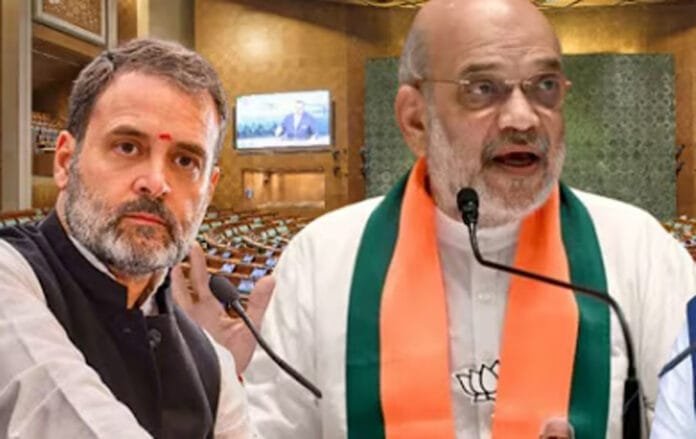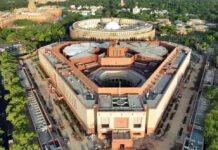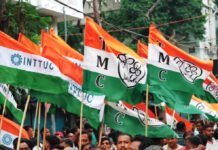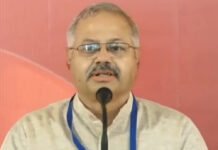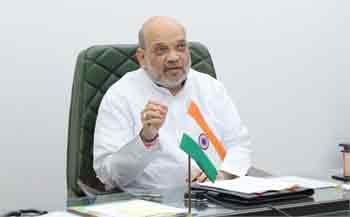The Winter Session of Parliament 2024 witnessed intense confrontations as both the ruling and opposition parties locked horns over Home Minister Amit Shah’s remarks on Dr. B.R. Ambedkar, the principal architect of the Indian Constitution. The session was marked by dramatic protests, fiery speeches, and repeated adjournments. Below, we delve into the key developments and their implications.
Home Minister’s Remarks Spark Uproar in Parliament
Home Minister Amit Shah’s comments on Dr. B.R. Ambedkar, made during a recent parliamentary session, ignited a political firestorm. Opposition leaders alleged that Shah’s statements demeaned Ambedkar’s legacy, prompting demands for an apology and his resignation. Congress leader Supriya Shrinate accused Shah of attempting to suppress his controversial remarks through directives to social media platforms, emphasizing the importance of freedom of expression.
The Bharatiya Janata Party (BJP) countered these allegations, claiming that the opposition distorted Shah’s speech for political gain. The BJP pointed to historical instances, accusing Congress of neglecting Ambedkar’s contributions, particularly in the delayed conferment of the Bharat Ratna to the iconic leader.
Opposition’s Protests: A Unified Front Against BJP
The opposition bloc, INDIA, staged a series of protests to express solidarity with Ambedkar’s legacy and demand Shah’s accountability. Members of Parliament (MPs) from Congress, AAP, SP, and other parties marched to the Ambedkar statue within the Parliament complex, chanting slogans such as “Baba Saheb ka apmaan, nahi sahega Hindustan” (India will not tolerate disrespect to Baba Saheb).
Prominent Congress leaders, including Rahul Gandhi and Priyanka Gandhi, drew attention with their symbolic attire—both donned blue, a color associated with Ambedkar and the Dalit rights movement. Their coordinated efforts underlined the opposition’s resolve to highlight Ambedkar’s pivotal role in shaping modern India.
Congress Accuses BJP of Suppressing Free Speech
Congress leader Supriya Shrinate claimed that Twitter (now X) received instructions from the Home and IT Ministries to remove videos of Shah’s controversial speech, citing violations of Indian law. Shrinate questioned the legal grounds for such censorship, emphasizing that the video in question directly quoted Shah’s parliamentary address. She further accused the BJP of attempting to obscure the truth and avoid accountability.
Government’s Defense: Allegations of Distortion
The BJP dismissed the opposition’s protests as baseless, emphasizing that Shah’s remarks highlighted Congress’s historical shortcomings. JDU leader Rajiv Ranjan Singh, a BJP ally, defended Shah’s speech, asserting that it included examples of Congress undermining Ambedkar’s contributions. According to Singh, the opposition twisted Shah’s words to mislead the public.
The BJP also pointed out that Ambedkar was awarded the Bharat Ratna during its tenure, contrasting it with Congress’s alleged indifference to Ambedkar’s legacy during its decades-long rule.
Parliament Adjournments Amidst Chaos
Both the Lok Sabha and Rajya Sabha experienced repeated disruptions as opposition leaders demanded a discussion on Shah’s remarks under Rule 267. The Chairman and Speaker attempted to restore order but eventually adjourned proceedings until 2 PM.
In the Rajya Sabha, opposition MPs waved placards and raised slogans, prompting BJP MPs to stage counter-demonstrations outside Parliament. Union Minister Giriraj Singh accused Congress of being the “biggest sinner” for failing to honor Ambedkar appropriately during its rule.
Symbolism and Solidarity: Opposition’s Strategic Moves
The opposition leveraged symbolism to emphasize their message. Rahul and Priyanka Gandhi’s blue outfits were seen as a nod to Ambedkar’s ideals of equality and social justice. Similarly, the INDIA alliance’s march to the Ambedkar statue underscored their commitment to preserving the Constitution and Ambedkar’s vision.
These actions were designed to resonate with a broader audience, particularly Dalit communities, who regard Ambedkar as a champion of their rights.
Expert Opinions on the Controversy
Political analysts have described the ongoing conflict as a strategic move by both sides to consolidate their respective voter bases ahead of upcoming elections. While the opposition seeks to position itself as the custodian of Ambedkar’s legacy, the BJP aims to shift the narrative by highlighting Congress’s historical failures.
Observers have noted that the controversy underscores the deepening polarization in Indian politics, where historical figures like Ambedkar become focal points of contemporary debates.
What Lies Ahead?
The Winter Session of Parliament 2024 has brought critical issues to the forefront, including freedom of expression, the preservation of constitutional values, and the legacy of Ambedkar. As both sides remain entrenched in their positions, the coming days are likely to witness more intense debates and demonstrations.
Key questions linger:
- Will Home Minister Shah issue a clarification or apology to defuse tensions?
- How will the opposition sustain its momentum in the face of counterattacks from the BJP?
- Can Parliament overcome these disruptions to address pressing legislative priorities?
The ongoing confrontation over Amit Shah’s remarks on Dr. B.R. Ambedkar reflects the enduring relevance of Ambedkar’s legacy in India’s socio-political landscape. As the Winter Session progresses, it remains to be seen how this controversy shapes the broader political discourse.
The stakes are high for both the ruling and opposition parties, as they navigate the complex interplay of public sentiment, historical accountability, and electoral calculations.

